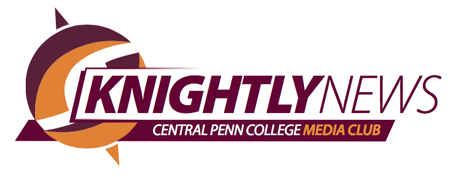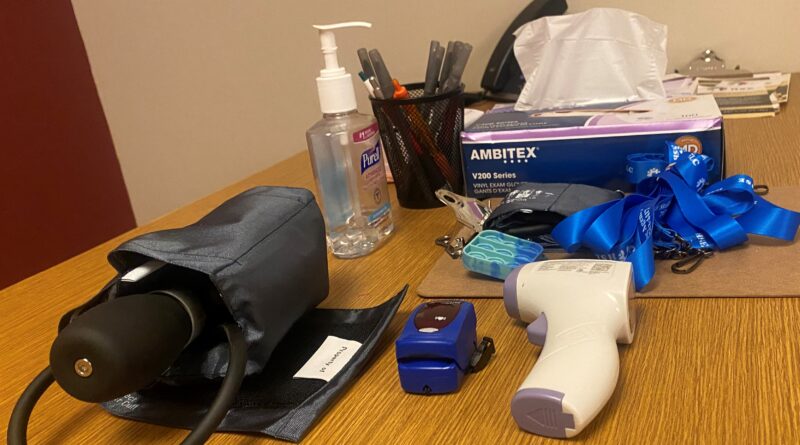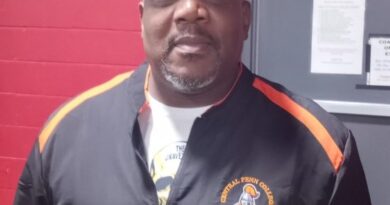Feel good with the Health Center
Keep tip-top. The free service for Central Penn students, faculty
and staff is here to meet your minor health concerns while on campus
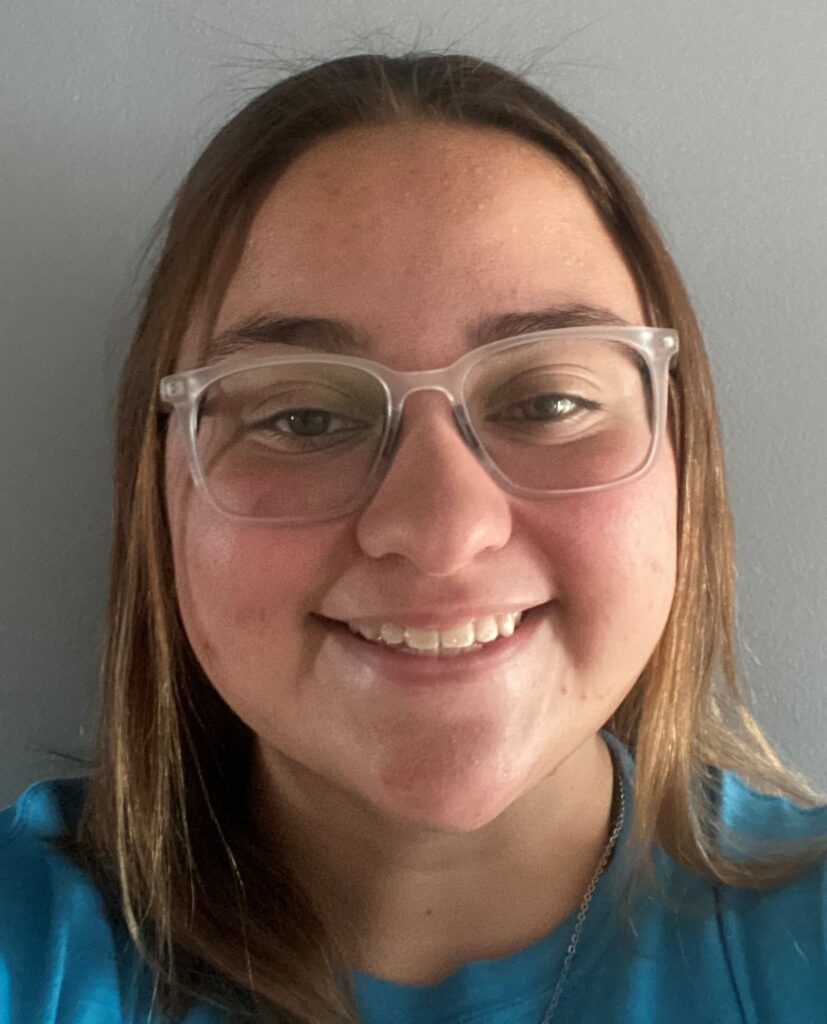
By Gabryelle Breski
Knightly News Reporter
gabryelle.breski@mymail.centralpenn.edu
Hey, Central Penn community: Have a minor injury, like a scrape, bruise or rash, or don’t feel well?
Keep in mind that the Health Center – also known as the Campus Clinic – is open Monday, Wednesday and Thursday, from 11 a.m. to 5 p.m., for students, faculty and staff, free of charge, in Suite 127.

Photo by Abbee Breski
The Health Center, a Central Penn partnership with UPMC, offers the following services:
- First aid
- Evaluation and assessment of minor illnesses or injuries
- Adhesive bandages
- First aid supplies
- Throat lozenges
- Over-the-counter medications
- Wound-dressing changes
- Referrals to physicians
- Health education
Appointments aren’t needed.
Who is in the Health Center?
Registered Nurse Alberto Munoz is on the first floor.
Munoz grew up in Puerto Rico and then moved to the mainland United States to join the Army, and later became a registered nurse.
Munoz began his medical journey in the Army as a combat medic, or corpsman.
First, Munoz went to an interview for traveling accounting; however, he needed conversational English to do so. That was when the Army became the next move.
He had taken tests for the Army, and he exceeded in aptitude for the medical services.
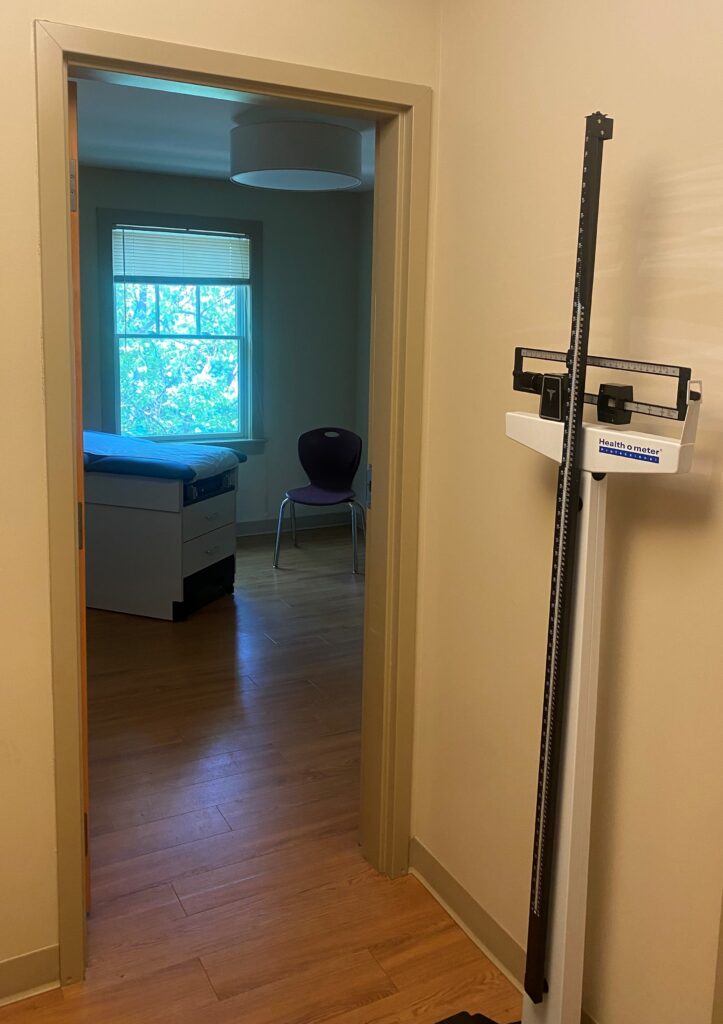
He served 14 years in the Army, with a few combat tours. When asked what the biggest takeaway from his time in the military was, Munoz stated, “Everything I know now,” but he added that he also benefited from education after.
After the Army, Munoz moved his family to Harrisburg.
He spent 10 years as a licensed practical nurse, and then attended Harrisburg Area Community College to become a registered nurse.
Munoz later worked as a travel nurse, in trauma, emergency medicine, intensive care units, emergency rooms and dialysis.
When the COVID-19 pandemic struck in 2020, Munoz had little choice but to remain local, so he worked as a supervisor at some rehab centers and logged shifts at some local hospitals.
Arriving at Central Penn
Last year, Munoz said, “Central Penn showed up.”
Munoz was then in day-to-day emergency medicine and working in the Central Penn Health Center was a new task.
“It is a different population in terms of health,” he said. “This is a healthier population. I am not as active as I used to be as far as tending to heavy-duty medical needs.”
What made him choose Central Penn?

Photo by Abbee Breski
His arrival at Central Penn followed Munoz’s 42 years in the healthcare field and allowed him to escape the “hurry-up state” he found himself in.
His advice for college students?
“Control anxiety,” and “hakuna matata,” from “The Lion King.”
The Health Center’s phone number is (717) 728-2431.
Meanwhile, on the second floor of Suite 127
Emily Horn is Central Penn’s athletic trainer in the Health Center. She has a master’s degree in sports psychology.
Horn grew up in York.
Horn spoke highly about the importance of building relationships with her athletes – and, best, before an injury occurs.

Photo by Abbee Breski
While building those relationships is key, Horn highlighted a very important topic for athletes: Why do you play?
Horn said athletes get hurt and sometimes quit after that injury, but that route might be a way for them to leave the sport without disappointing someone they love or look up to.
An athlete can be fighting to start each week, but sometimes if the sport becomes more like a chore than a fun extracurricular activity, it may be time to spend more effort and time on the other extracurricular activities available besides sports.
“If you truly don’t love the sport anymore, should you be playing it?” she asked.
Horn enjoys seeing her athletes through. From the minute the injury takes place, Horn gets to help the player back to the sport he or she loves, and she gets to see the return.
The athletic trainer travels to all games and attempts to attend as many practices as possible.
Why athletic training?
There is a reason we start anything.
For Horn, it was her grandmother tearing her Achilles tendon. She enjoyed assisting her grandmother in her rehab.
Some people say that if you enjoy your job, you will never work a day in your life.
In athletic training, “every day is different,” according to Horn.
In high school, she took anatomy, which helped her in college, but she also completed a job shadow with her high school athletic trainer.
Horn’s best advice to student-athletes is “take care of yourself.”
She spoke about the benefits of taking care of one’s body now so that as a person ages, he or she can teach children the game the person loved. Stretching and rest as needed will help the athlete not regret his or her days playing the sport.
She said another aspect of self-care is being a student first and an athlete second. This means getting involved and finding hobbies that you enjoy outside the sport. That way, when you’re finished with the sport, you’ll have something to fall back on.
Breski is president of The Knightly News Media Club @ Central Penn College.
Comment or story idea? Contact KnightlyEditors@CentralPenn.Edu.
Edited by media-club co-adviser and blog editor Professor Michael Lear-Olimpi.
